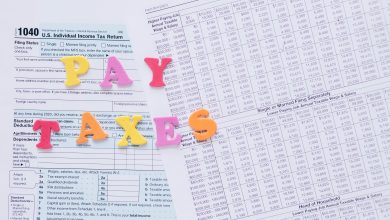How to Set Yourself Up for Financial Emergencies

How to Set Yourself Up for Financial Emergencies
Life doesn’t always go as planned. Whether it’s a medical crisis, sudden job loss, or unexpected home repairs, financial emergencies can strike at any time. What separates financial stress from financial stability is preparation. Here’s how to set yourself up now so you’re ready when the unexpected happens.
1. Build an Emergency Fund
The most important step is to create an emergency fund. Aim to save at least three to six months’ worth of essential living expenses. This includes rent or mortgage, utilities, groceries, transportation, insurance, and minimum debt payments. Keep this fund in a separate high-yield savings account so it’s accessible but not tempting to spend.
Start small if you have to. Even saving a few dollars a week adds up. Automate transfers from your checking account to make the process consistent and effortless. Your emergency fund is your first line of defense.
2. Reduce High-Interest Debt
Debt can drain your finances during an emergency. Prioritize paying down high-interest debts like credit cards. The less you owe, the more flexibility you have. If possible, consolidate debt or refinance loans to lower interest rates. Having fewer monthly obligations frees up cash when you need it most.
3. Know Your Essential Expenses
Understanding your bare-bones budget helps in two ways. First, it shows you how much your emergency fund should cover. Second, if your income drops suddenly, you’ll know exactly what expenses to cut or pause. Review your bank statements to identify fixed and variable costs, and map out what’s truly essential.
4. Get the Right Insurance Coverage
Insurance protects you from financial shocks. Health insurance is non-negotiable. Also consider disability insurance, renter’s or homeowner’s insurance, and even life insurance if others depend on your income. Read the fine print and make sure your policies match your current needs. A small monthly premium can prevent a massive financial hit.
5. Create a Backup Income Plan
Don’t wait until you’re out of work to think about income. Develop a plan B now. This could mean upskilling for a different industry, freelancing on the side, or exploring remote work opportunities. Having an alternate income stream can help you stay afloat while you get back on your feet.
6. Store Key Documents
In an emergency, you don’t want to be scrambling for passwords, bank info, or insurance details. Keep physical copies of essential documents and back them up digitally in a secure location. This includes ID, health records, account numbers, and emergency contacts.
Conclusion
Financial emergencies don’t wait for the right moment—they hit hard and fast. But being prepared can turn a crisis into a manageable situation. Building an emergency fund, cutting debt, and having a backup plan aren’t just smart moves—they’re essential ones. Set yourself up now, while things are stable, so when life throws a curveball, you’re ready to handle it with confidence.



